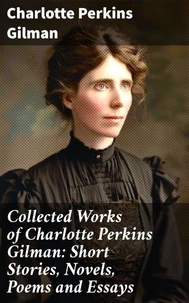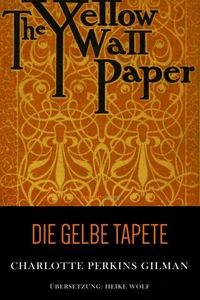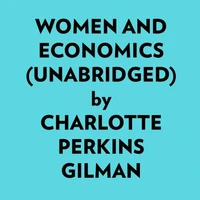The Herland Trilogy: Moving the Mountain, Herland, With Her in Ourland (Utopian Classic)
Par :Formats :
Disponible dans votre compte client Decitre ou Furet du Nord dès validation de votre commande. Le format ePub est :
- Compatible avec une lecture sur My Vivlio (smartphone, tablette, ordinateur)
- Compatible avec une lecture sur liseuses Vivlio
- Pour les liseuses autres que Vivlio, vous devez utiliser le logiciel Adobe Digital Edition. Non compatible avec la lecture sur les liseuses Kindle, Remarkable et Sony
 , qui est-ce ?
, qui est-ce ?Notre partenaire de plateforme de lecture numérique où vous retrouverez l'ensemble de vos ebooks gratuitement
Pour en savoir plus sur nos ebooks, consultez notre aide en ligne ici
- Nombre de pages352
- FormatePub
- ISBN859-65--4774116-9
- EAN8596547741169
- Date de parution03/12/2023
- Protection num.Digital Watermarking
- Taille1 Mo
- Infos supplémentairesepub
- ÉditeurDIGICAT
Résumé
In "The Herland Trilogy: Moving the Mountain, Herland, With Her in Ourland, " Charlotte Perkins Gilman presents a thought-provoking exploration of gender equality and utopian ideals through a unique narrative structure. Comprising three distinct yet interconnected works, the trilogy examines the lives of an all-female society, Herland, where traditional gender roles are upended, and communal living fosters a nurturing social order.
Gilman's prose is imbued with a didactic tone and sharp wit, making use of vivid imagery and rich characterization to immerse readers in a world that both mirrors and critiques early 20th-century societal norms, ultimately advocating for women's autonomy and the reformation of societal structures. Charlotte Perkins Gilman, a prominent feminist thinker and writer, drew on her personal experiences with postpartum depression and gender-based oppression to inform her writing.
An advocate for women's rights, Gilman was heavily influenced by the changing societal landscapes of her time, making her works not only a reflection of her beliefs but also a commentary on the progressive movements surrounding women's suffrage and liberation. This trilogy is a must-read for those interested in feminist literature and utopian studies. It invites readers to challenge their perceptions of gender and society, encouraging a reexamination of contemporary values.
Gilman's insightful and imaginative narrative offers both inspiration and provocation, making it a crucial addition to modern discussions on equality.
Gilman's prose is imbued with a didactic tone and sharp wit, making use of vivid imagery and rich characterization to immerse readers in a world that both mirrors and critiques early 20th-century societal norms, ultimately advocating for women's autonomy and the reformation of societal structures. Charlotte Perkins Gilman, a prominent feminist thinker and writer, drew on her personal experiences with postpartum depression and gender-based oppression to inform her writing.
An advocate for women's rights, Gilman was heavily influenced by the changing societal landscapes of her time, making her works not only a reflection of her beliefs but also a commentary on the progressive movements surrounding women's suffrage and liberation. This trilogy is a must-read for those interested in feminist literature and utopian studies. It invites readers to challenge their perceptions of gender and society, encouraging a reexamination of contemporary values.
Gilman's insightful and imaginative narrative offers both inspiration and provocation, making it a crucial addition to modern discussions on equality.
In "The Herland Trilogy: Moving the Mountain, Herland, With Her in Ourland, " Charlotte Perkins Gilman presents a thought-provoking exploration of gender equality and utopian ideals through a unique narrative structure. Comprising three distinct yet interconnected works, the trilogy examines the lives of an all-female society, Herland, where traditional gender roles are upended, and communal living fosters a nurturing social order.
Gilman's prose is imbued with a didactic tone and sharp wit, making use of vivid imagery and rich characterization to immerse readers in a world that both mirrors and critiques early 20th-century societal norms, ultimately advocating for women's autonomy and the reformation of societal structures. Charlotte Perkins Gilman, a prominent feminist thinker and writer, drew on her personal experiences with postpartum depression and gender-based oppression to inform her writing.
An advocate for women's rights, Gilman was heavily influenced by the changing societal landscapes of her time, making her works not only a reflection of her beliefs but also a commentary on the progressive movements surrounding women's suffrage and liberation. This trilogy is a must-read for those interested in feminist literature and utopian studies. It invites readers to challenge their perceptions of gender and society, encouraging a reexamination of contemporary values.
Gilman's insightful and imaginative narrative offers both inspiration and provocation, making it a crucial addition to modern discussions on equality.
Gilman's prose is imbued with a didactic tone and sharp wit, making use of vivid imagery and rich characterization to immerse readers in a world that both mirrors and critiques early 20th-century societal norms, ultimately advocating for women's autonomy and the reformation of societal structures. Charlotte Perkins Gilman, a prominent feminist thinker and writer, drew on her personal experiences with postpartum depression and gender-based oppression to inform her writing.
An advocate for women's rights, Gilman was heavily influenced by the changing societal landscapes of her time, making her works not only a reflection of her beliefs but also a commentary on the progressive movements surrounding women's suffrage and liberation. This trilogy is a must-read for those interested in feminist literature and utopian studies. It invites readers to challenge their perceptions of gender and society, encouraging a reexamination of contemporary values.
Gilman's insightful and imaginative narrative offers both inspiration and provocation, making it a crucial addition to modern discussions on equality.









